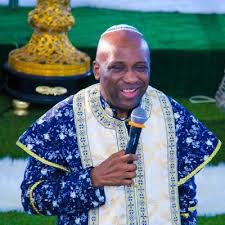Top Stories
Atiku, El-Rufai, Other Politicians, Security Officers ‘Linked’ With Properties In Dubai

A comprehensive investigation has uncovered that approximately 200 Nigerian politicians, security officers, and their associates have collectively invested almost $1 billion (N1.49 trillion) in Dubai’s real estate market over the past two decades, according to a BusinessDay report.
The explosive findings are part of a global investigative project, “Dubai Unlocked,” spearheaded by the Organized Crime and Corruption Reporting Project (OCCRP) and over 70 media partners worldwide.
Economy Post, the sole Nigerian participant in this investigation, provided crucial data revealing extensive property holdings by politically exposed Nigerian persons (PEPs), their families, and high-ranking civil servants in Dubai.
The report indicates a significant increase from previous years, with the current figures standing at 1,600 properties valued at $997.79 million, up from 800 properties worth $400 million in 2020.
These properties are located in some of Dubai’s most prestigious areas, including the Burj Khalifa and Palm Jumeirah.
Nigerians rank as the second-largest foreign real estate investors in Dubai, trailing only behind Indians, with PEPs and their connections owning approximately 88% of the properties tied to Nigerians.
BusinessDay’s analysis also included social media scrutiny and cross-referencing birth dates to confirm identities and property ownership.
A law professor, Emmanuel Okeke, commented on the findings, noting that while owning property abroad is lawful, the significant capital flow into Dubai’s market raises concerns about potential corruption.
“These revelations are critical as they shed light on the foreign investment behaviors of Nigerian elites and their implications on the country’s economic and anti-corruption landscape,” said Okeke.


 News17 hours ago
News17 hours agoNIGERIAN BREWERIES PARTNERS OZA CARNIVAL

 Top Stories5 hours ago
Top Stories5 hours agoTinubu’s Aide Condemns Plan To Reinstall ‘Jesus Is Not God’ Banner In Lekki Mosque

 News5 hours ago
News5 hours agoPetrol To Sell ₦935/Litre From Today – IPMAN

 Top Stories5 hours ago
Top Stories5 hours ago2025 Budget Cannot Address Nigeria’s Economic Challenges – Atiku

 News5 hours ago
News5 hours agoPresident Tinubu’s reforms not responsible for food stampedes – FG

 Entertainment5 hours ago
Entertainment5 hours agoI will be more influential in Nigeria than UK – Tobi Adegboyega

 Top Stories2 hours ago
Top Stories2 hours agoPrimate Ayodele’s Prophecies For 2025








